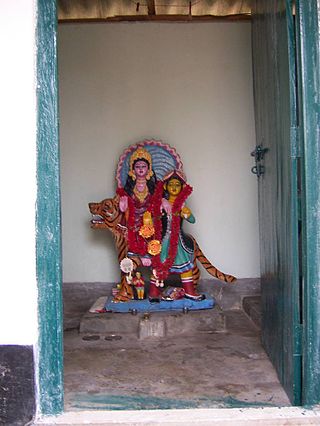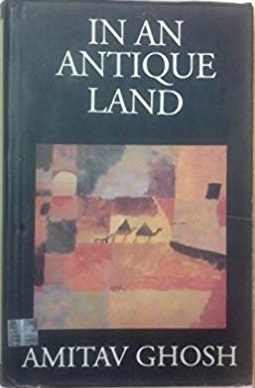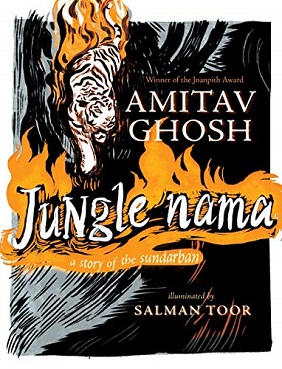
Amitav Ghosh is an Indian writer. He won the 54th Jnanpith award in 2018, India's highest literary honor. Ghosh's ambitious novels use complex narrative strategies to probe the nature of national and personal identity, particularly of the people of India and South Asia. He has written historical fiction and also written non-fiction works discussing topics such as colonialism and climate change.

Pankaj Mishra FRSL is an Indian essayist, novelist, and socialist political figure. His non-fiction works include Temptations of the West: How to Be Modern in India, Pakistan, Tibet, and Beyond, From the Ruins of Empire: The Intellectuals Who Remade Asia and A Great Clamour: Encounters with China and Its Neighbours, and has published two novels. He is a Bloomberg opinion columnist, and prolific contributor to other periodicals such as the Guardian, the New York Times, The New Yorker and the New York Review of Books. His writings have led to a number of controversies, including disputes with Salil Tripathi, Niall Ferguson and Jordan Peterson. He was awarded the Windham–Campbell Prize for non-fiction in 2014.

The Hungry Tide (2004) is the fourth novel by Indian-born author, Amitav Ghosh. Set in the Sundarbans, it follows an unlikely trio who travel up river together to find the rare Irrawaddy dolphin. It won the 2004 Hutch Crossword Book Award for Fiction.

The Great Divergence or European miracle is the socioeconomic shift in which the Western world overcame pre-modern growth constraints and emerged during the 19th century as the most powerful and wealthy world civilization, eclipsing previously dominant or comparable civilizations from the Middle East and Asia such as the Ottoman Empire, Mughal India, Qing China, Tokugawa Japan, and Joseon Korea.

Sea of Poppies (2008) is a novel by Indian novelist Amitav Ghosh which was shortlisted for the Man Booker Prize in 2008. It is the first volume of the Ibis trilogy. In the words of Rajnish Mishra, "the Ibis trilogy is Ghosh's most vehement indictment of the source of imperialism and colonialism". The second volume is River of Smoke.

Banbibi, the lady of the forest, also Bandevi, Bandurga and Byaghradevi is a guardian spirit of the forests venerated by both the Hindu and the Muslim residents of the Sundarbans. She is called upon mostly by the honey-collectors and the woodcutters before entering the forest for protection against the attacks from the tigers. It is believed that the demon king, Dakkhin Rai, an arch-enemy of Banbibi actually appears in the disguise of a tiger and attacks human beings.
The Asia House Festival of Asian Literature, is the first and only Literary festival in the UK dedicated to writing about Asia.

In an Antique Land is a 1992 book written in first-person by Indian writer Amitav Ghosh recounting his experiences in two Egyptian villages attempting to retrace accounts of an unknown Indian slave, as well as a reconstruction of the life of a 12th-century Jewish merchant in the area. It describes a variety of characters, going into great detail regarding their lives and Ghosh's interactions with them.

Frank Dikötter is a Dutch historian who specialises in modern China. Dikötter has been Chair Professor of Humanities at the University of Hong Kong since 2006. Before relocating to Hong Kong, he was Professor of the Modern History of China at the School of Oriental and African Studies at the University of London. He holds an honorary doctorate from Leiden University and is a senior fellow at the Hoover Institution of Stanford University.
The World History Association Bentley Book Prize is an annual award given by the World History Association. It was first awarded in 1999 as the World History Association Book Prize; the name was changed in 2012 to honor Jerry H. Bentley. The prize is $500.
The Ibis trilogy is a work of historical fiction by Indian writer Amitav Ghosh, consisting of the novels Sea of Poppies (2008), River of Smoke (2011) and Flood of Fire (2015). A work of postcolonial literature, the story is set across the Indian Ocean region during the 1830s in the lead-up to the First Opium War. It particularly focuses on the trade of opium between India and China and the trafficking of girmityas to Mauritius. The series has received critical acclaim and academic attention for its historical research, themes and ambition. A television series adaptation was announced to be in development in 2019.

Climate fiction is literature that deals with climate change. Generally speculative in nature but scientifically-grounded, works may take place in the world as we know it or in the near future. The genre frequently includes science fiction and dystopian or utopian themes, imagining the potential futures based on how humanity responds to the impacts of climate change. Rationales for the genre typically assume knowledge of anthropogenic effects—human-altered climate as opposed to weather and disaster more generally—although broader definitions exist. Technologies such as climate engineering or climate adaptation practices often feature prominently in works exploring their impacts on society.
The so-called Bombay Cyclone of 1882 or Great Bombay Cyclone is a hoax historical event. Supposedly, the cyclone struck Bombay on 6 June 1882. Though it is widely reported, even in scientific literature, historical research shows that it did not in fact happen.
The Great Derangement can refer to:

JL50 is an Indian Hindi-language sci-fi thriller web television miniseries which premiered on Sony Liv on 4 September 2020. The series stars Abhay Deol, Pankaj Kapur, Ritika Anand, Piyush Mishra and Rajesh Sharma.

Weather is a 2020 novel by American writer Jenny Offill. The novel is narrated by a college librarian, Lizzie. The book takes place before and after Donald Trump becomes president of the United States and depicts Lizzie's family life and her concerns about climate change. The novel received mostly positive reviews, with favorable comparisons to Offill's previous novel, Dept. of Speculation and praise for its structure.
Petrofiction or oil fiction, is a genre of fiction focused on the role of petroleum in society.

Jungle Nama is a graphic verse novel written by Indian author Amitav Ghosh and illustrated by Pakistani-American artist Salman Toor. It is a verse adaptation of the medieval Bengali tale about the Sundarbans Forest goddess, Bon Bibi. The book was first published on the 12th of February 2021 by Fourth Estate India and then in Great Britain on the 11th of November 2021 by John Murray Press. It is Ghosh’s first book in verse. The story explores themes of greed and ecological misadventure. (1,3) Ghosh states that the story is an allegory for human caused climate change.

The Nutmeg's Curse: Parables for a Planet in Crisis is a 2021 non-fiction book by Amitav Ghosh. It discusses colonialism and environmental issues with particular focus on the Banda Islands. It is Ghosh's second non-fiction work to discuss climate change, after The Great Derangement: Climate Change and the Unthinkable (2016).
Hari Sen is an academic historian from Himachal Pradesh, India. He is a former teacher of history at Delhi University and conducted research on the Bhils of colonial Rajasthan. He is also the current titular Raja of the erstwhile princely state of Suket.













